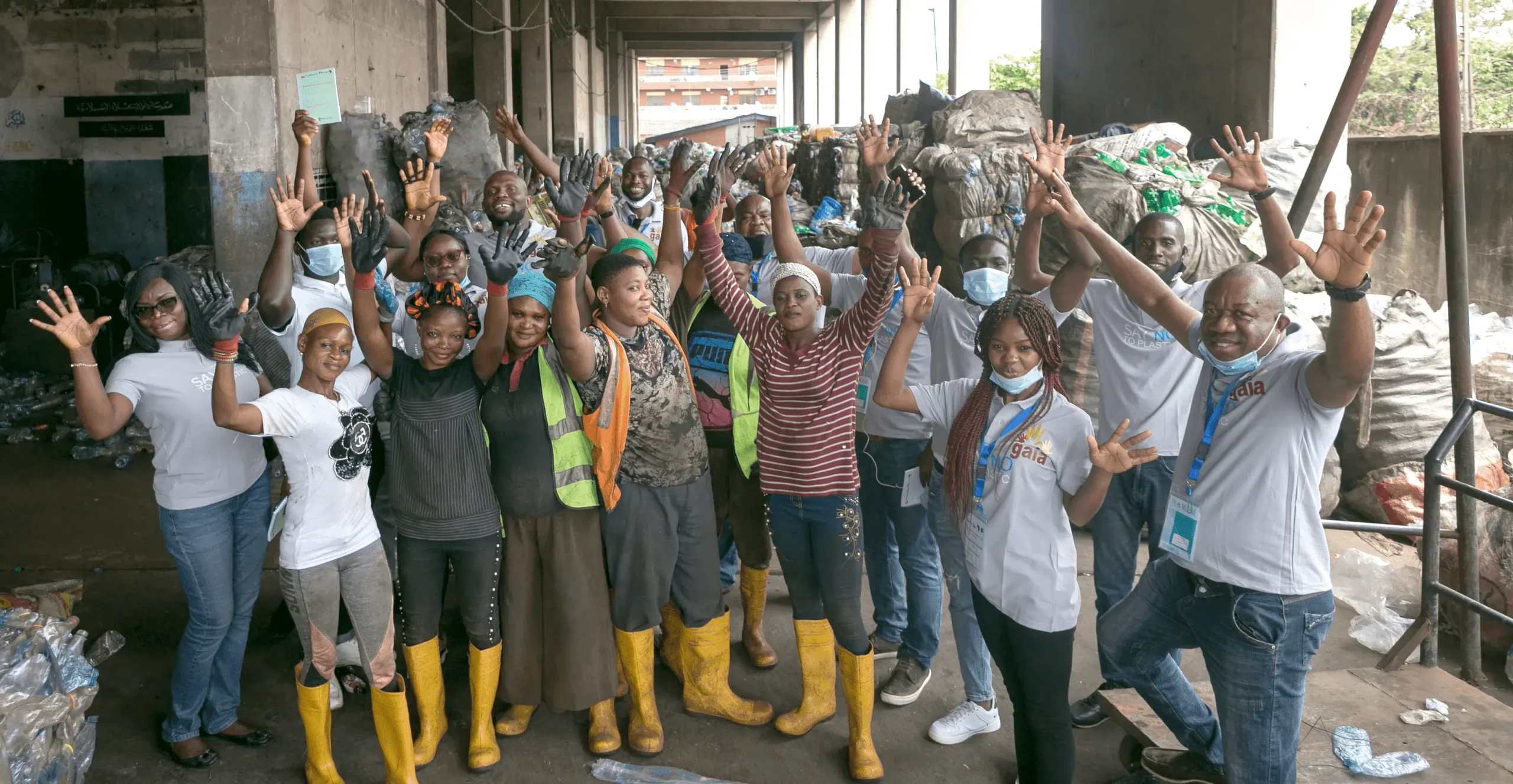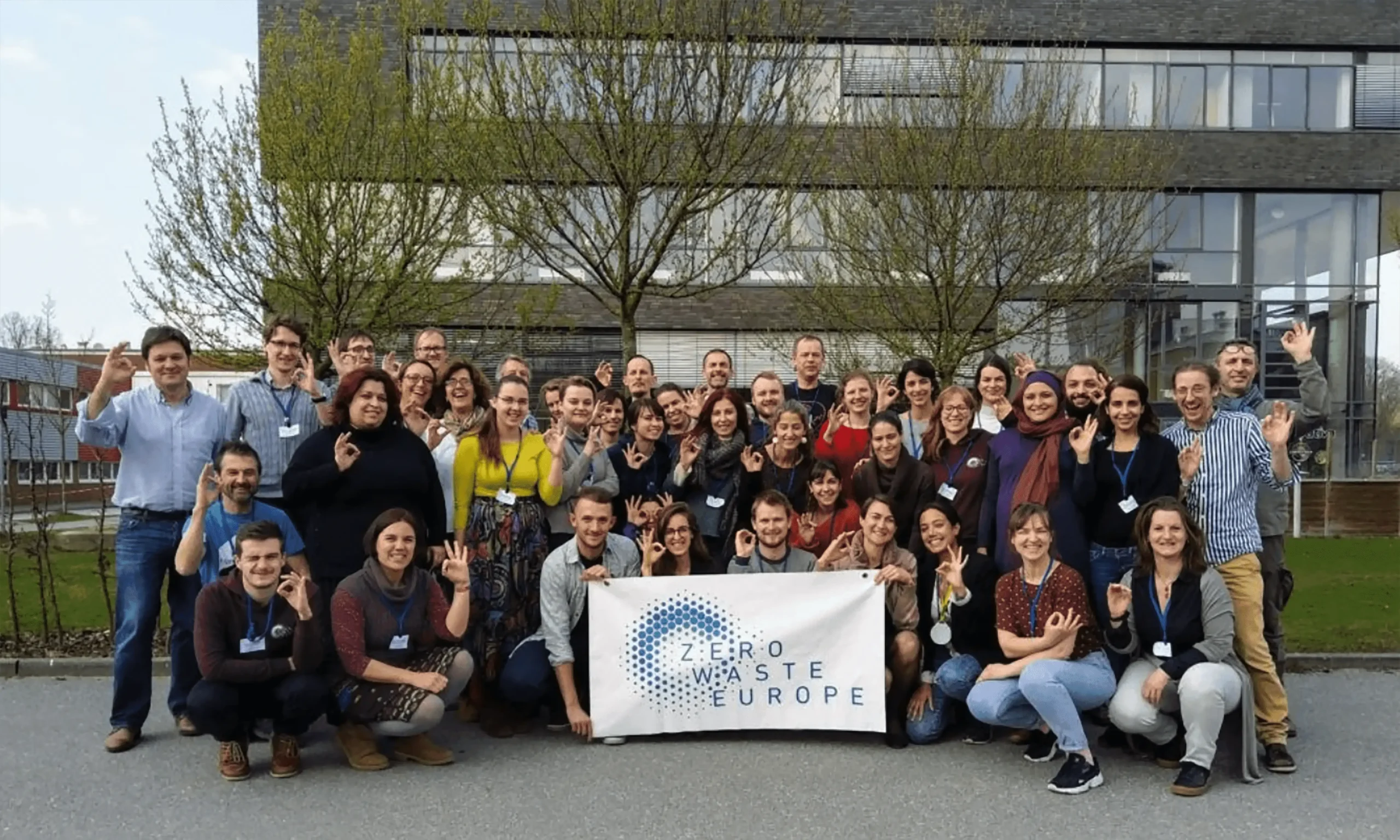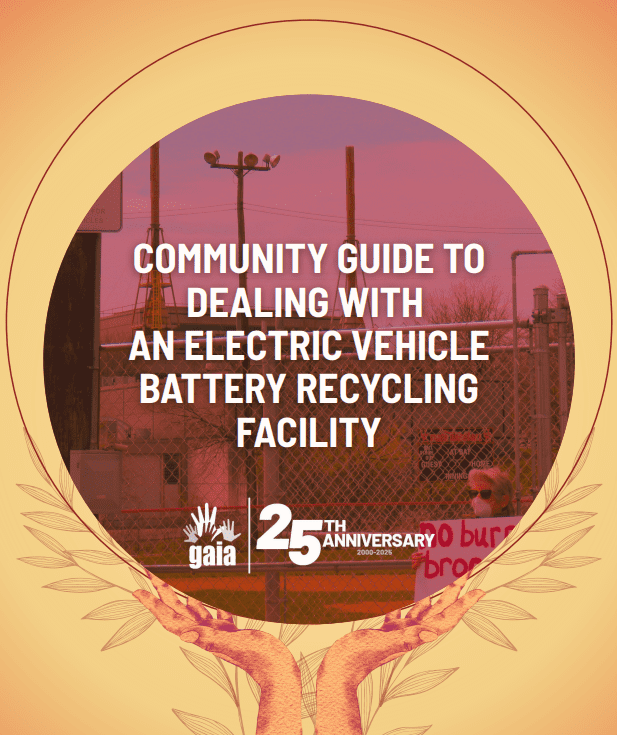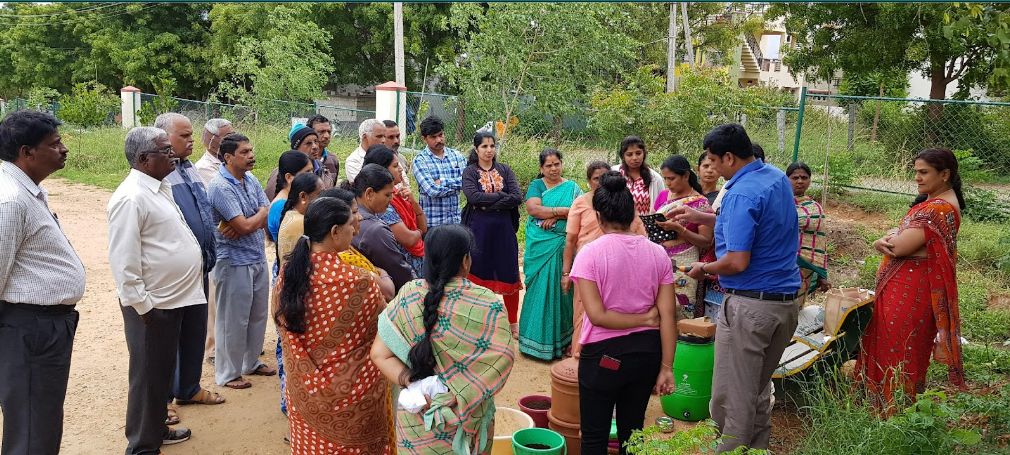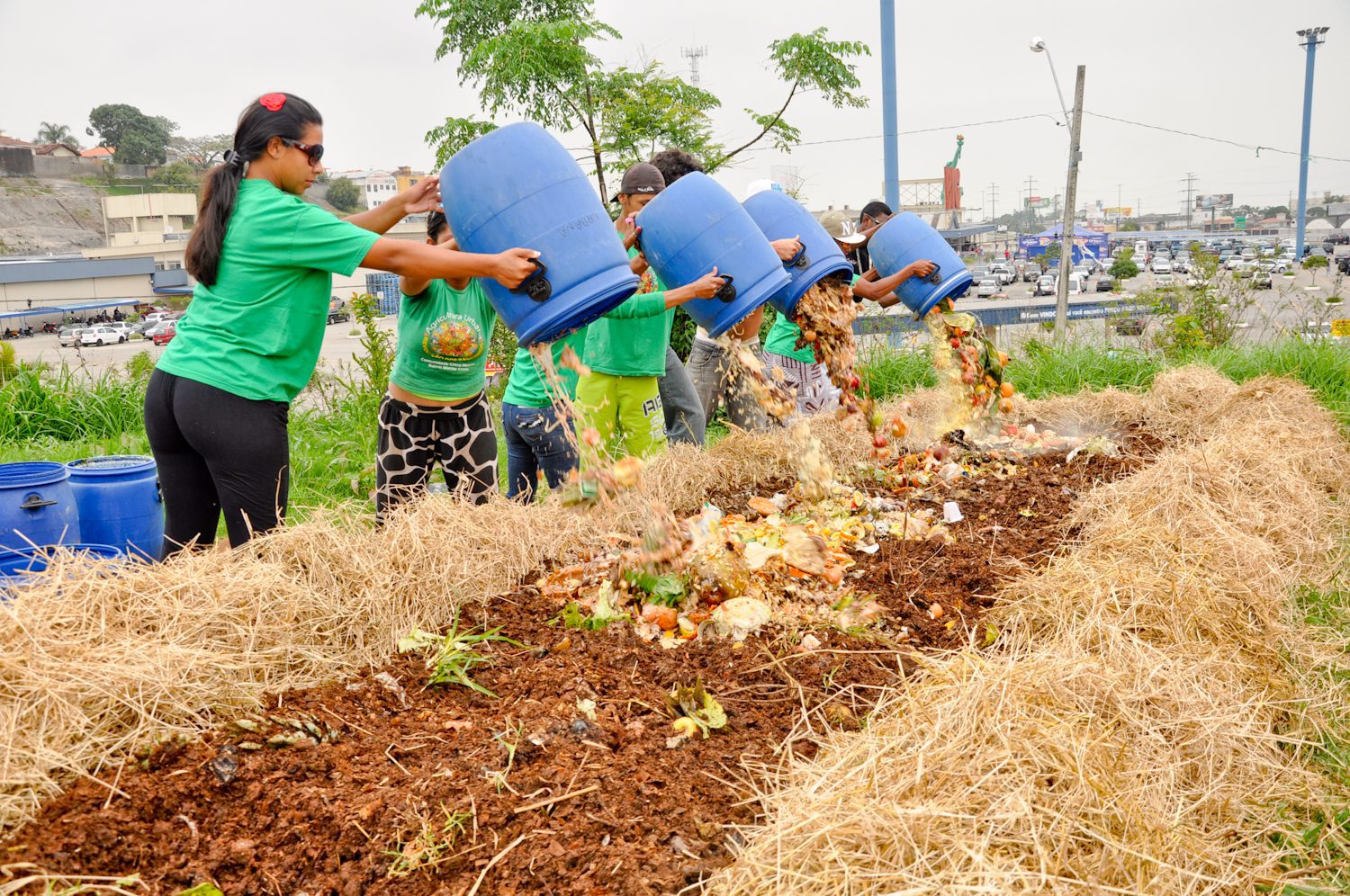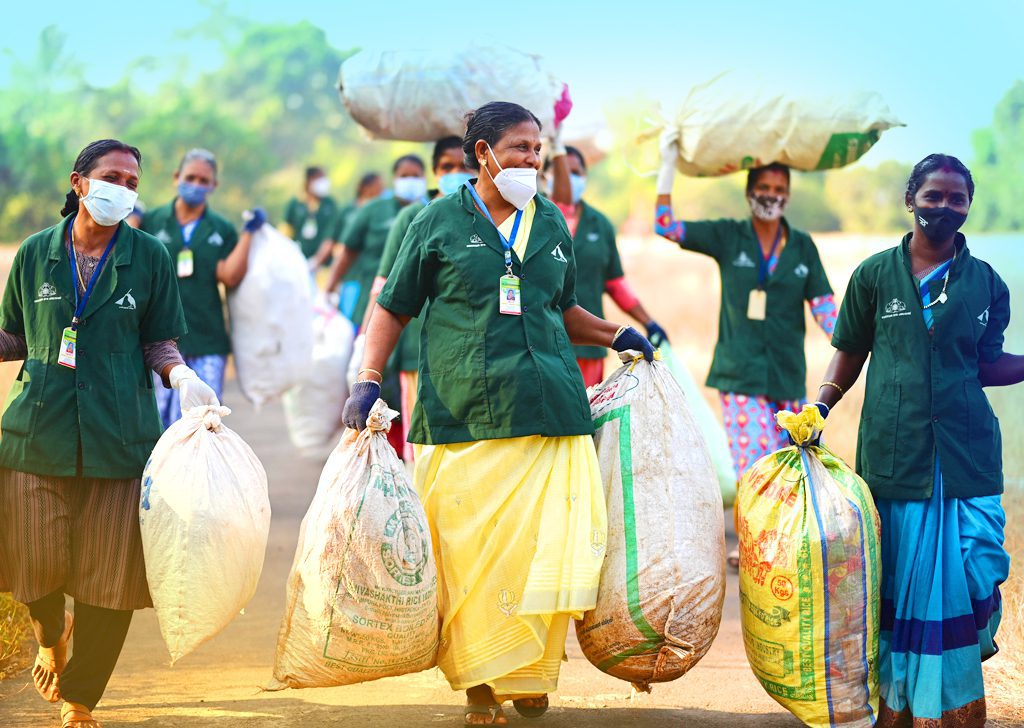Why must zero waste be part of climate policy?
70% of all greenhouse gas emissions comes from making, taking, and wasting stuff, and 20% of methane emissions–a greenhouse gas 80 times as potent as C02–comes from landfills. If we are to reach the 1.5 degree target in the Paris Agreement, we need an international effort to reduce waste and adopt zero waste strategies like reuse, repair, and composting. We know it works: people around the world have been practicing zero waste for millennia. If we act now we can tackle our waste and climate crises while creating better jobs, more resilient cities, and a livable future for all.
Environmental Justice Values and Principles for Waste and Climate Change
The Environmental Justice Principles for Fast Action on Waste and Methane, has been produced by GAIA in collaboration with environmental justice advocates and zero waste practitioners from 41 different countries over the last few months. This set of EJ principles provides guidance to policymakers and key stakeholders on how to integrate community members and waste workers in the design and implementation of waste systems, which tends to support sustainability over time, especially when complemented by government strategies.Environmental justice is key to ensuring climate solutions that are fair, just, and sustainable in the future. Up until now, and despite its importance, there has been no central set of values and principles to guide decision-makers in order to ensure that the right steps are being taken to incorporate justice into national plans for methane reduction.The Framework includes a vision for systems change towards zero waste, climate justice, and quick action on methane reduction. Furthermore, it outlines 5 environmental justice principles for the waste sector. It is also complemented with guidance for policymakers and checklists for NDCs that are anchored to the 5 principles. Successful implementation of organic waste diversion in line with EJ principles builds community, waste worker, and local government buy-in and demonstrates the practical effectiveness of these strategies, including important co-benefits in livelihoods and environmental health.
Stories of EJ Values and Principles for Climate Action
GAIA AT COP28
- Frontrunner zero waste best practices in key cities in the Global South, presented by city government officials and key local organizations engaging with local policymakers;
- Zero waste implementers particularly in setting up composting programs, effectively diverting organic waste from dumpsites and providing natural fertilizer to agroecology projects;
- Climate finance advocates engaged in shifting the flows of climate finance from dirty energy to sustainable solutions;
- Experts on environmental health who will showcase the additional social benefits of investing in justice-centered zero waste solutions;
- Waste pickers and waste workers working to build cooperatives to integrate the informal sector and improve livelihoods of thousands of people across the world making a living with material recovery.
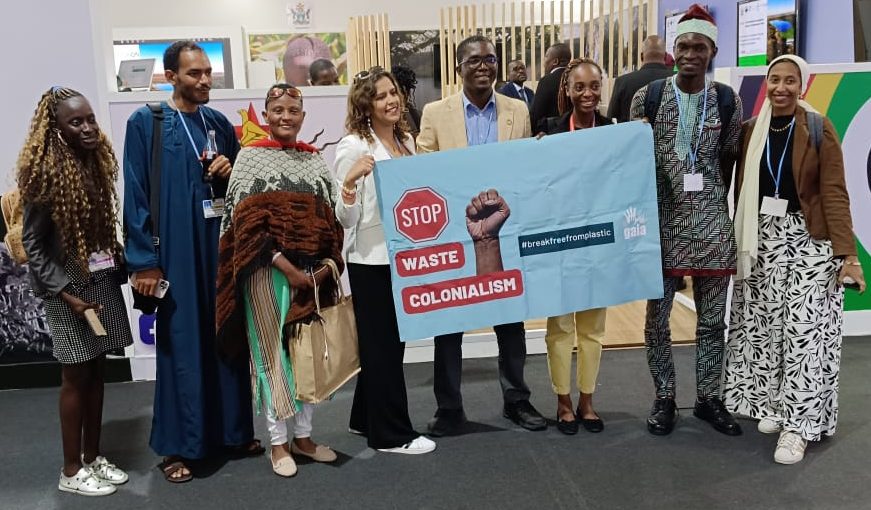
NEWS
On the day of the Methane Ministerial at COP28, GAIA released Environmental Justice Principles for Fast Action on Waste and Methane, a resource for policymakers that provides guidance on how to craft programs and policies for tackling methane that can also help address interconnected equity issues that currently plague our global society.
The Hub is a virtual and in-person learning platform that allows partners working in waste management and zero waste spaces to collaborate and connect across spatial scales.
Every day Bangladesh generates 25,000 tons of solid wastes in the urban areas. From which an enormous amount of wastes remains uncollected. It is expected that waste production will be increased by 47,000 tons per day by 2025. Keep reading:
Campaigning for the use of only recyclable plastic, Indumathi says in India, about 50 per cent of waste is not recycled as a large share of it is low-value plastic.
Building a waste-to-energy (WTE) facility is a “false” and unsustainable solution to the city’s solid waste problem, a network of environmental groups in Davao City maintained.
Resources
This flagship report by the Global Alliance for Incinerator Alternatives (GAIA) provides the clearest and most comprehensive evidence to date of how better waste management is critical to the climate fight, while building resilience, creating jobs, and promoting thriving local economies.
This report highlights the most actionable steps governments can take to reduce methane emissions. We found that by tackling the waste sector, governments will get fast results using some of the easiest and most affordable methane reduction strategies available. Waste prevention, source-separation of organic discards, and other methods can reduce solid waste methane emissions by as much as 95% by 2030.
Waste is the third largest source of methane emissions, a greenhouse gas over 80 times as potent as CO2. Most waste sector methane emissions come from landfilling organic waste. This paper discusses how diverting organic waste from landfill is one of the fastest and most affordable ways to lower methane emissions.
Nationally Determined Contributions (NDCs) are submitted by signatory countries to the Paris Agreement that describe their plans and goals for reducing greenhouse gas emissions. In October 2021, GAIA analyzed 99 NDCs to evaluate how zero waste solutions — plastic reduction, waste separation, composting, and environmental justice — are embedded in national climate mitigation plans. As an update to the analysis, we present a set of country profiles, featuring the governments’ commitments made for the waste sector and grassroots efforts for climate zero waste solutions in 12 countries in Africa, Asia, Europe, Latin America, and North America.
Net zero strategies put forward by key industries such as cement and plastic production will be insufficient to limit global warming to 1.5C. Current industry net zero roadmaps are projected to still not meet the target, resulting in warming of up to 2oC. Instead, it is imperative to reduce resource consumption, particularly in the Global North in the cement and plastic production sectors. Zero waste systems provide an immediate and affordable opportunity for cities to meet ambitious emissions reduction targets in the context of rapid urbanisation and increasing waste generation.
Under the cover of “net zero,” the plastics and petrochemical industry is trying to greenwash expanded plastic production. Plastic is carbon. It is bad for climate change and could never be a part of any realistic solution.









